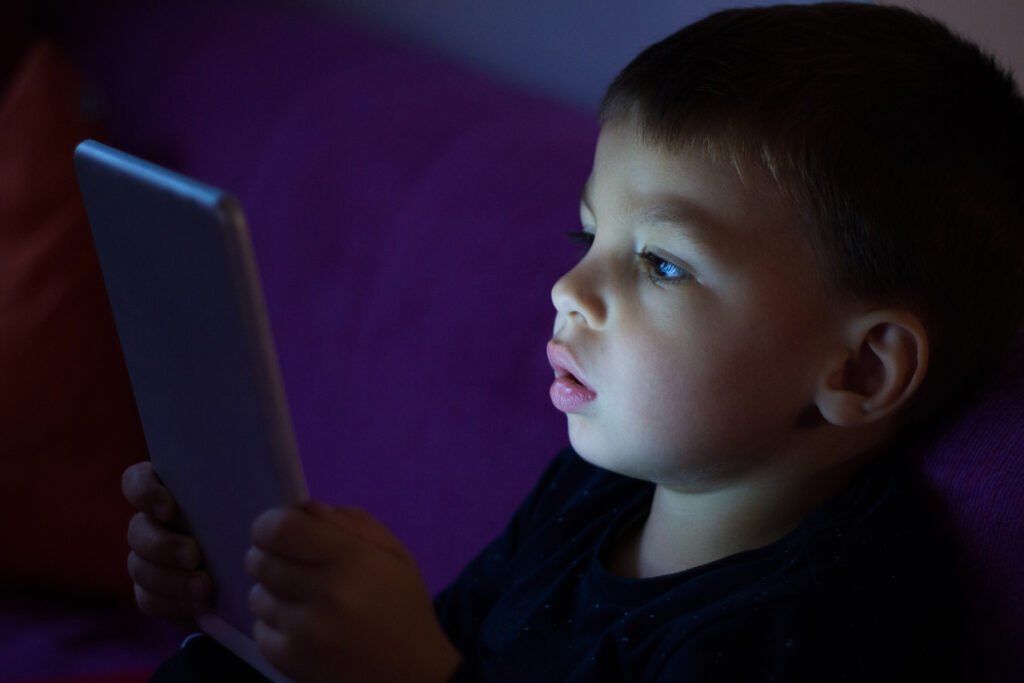As parents, we live in a digital age where screens are ubiquitous, and managing screen time for kids has become a concern for many. With the increasing reliance on technology for education, entertainment, and communication, it’s important for parents to be aware of the impact of screen time on their child’s overall well-being. In this blog, we will explore practical tips for today’s parents on how to manage screen time for kids, addressing common questions and concerns along the way.
Why is screen time a concern for parents?

As screens have become more prevalent in our daily lives, concerns about the impact of excessive screen time on children’s health and development have risen. Research suggests that prolonged screen time can lead to physical, mental, and emotional health issues in children, including obesity, sleep problems, attention difficulties, social and emotional challenges, and academic performance concerns.
So, how can parents effectively manage screen time for their kids? Here are some practical tips:
- Set clear and consistent rules: Establish clear and consistent rules around screen time, including the amount of time allowed, types of content, and specific times of the day or week when screens are allowed or not allowed. Communicate these rules with your child and enforce them consistently.
- Be a role model: Children learn by observing their parents’ behavior, so be a positive role model when it comes to screen time. Limit your own screen time, especially during family time or mealtime, and prioritize other activities such as outdoor play, reading, or spending quality time together without screens.
- Create screen-free zones: Designate certain areas in your home as screen-free zones, such as the dining table, bedrooms, or during family bonding time. This helps promote healthy boundaries between screen time and other activities and encourages children to engage in other hobbies or spend time with family and friends.
- Encourage balanced activities: Encourage a balanced approach to activities beyond screens. Encourage physical activities, social interactions, creative play, and hobbies that promote cognitive, emotional, and physical development. Help your child discover and cultivate interests beyond screens.
- Use parental controls and content filters: Utilize parental controls and content filters on devices and apps to limit access to age-appropriate content and protect your child from exposure to harmful content. Familiarize yourself with the privacy settings and safety features of the devices and apps your child uses.
- Communicate and educate: Have open and ongoing conversations with your child about screen time and its impact. Educate them about the potential risks and benefits of screen time, and empower them to make informed choices. Encourage critical thinking, responsible use, and healthy habits around screens.
- Be flexible and adaptable: Every child is different, and what works for one child may not work for another. Be willing to adapt your approach to screen time management based on your child’s age, developmental stage, and individual needs. Listen to your child’s concerns and feedback, and work together to find a balance that works for your family.
It’s important to remember that managing screen time for kids is not about eliminating screens entirely but rather finding a healthy balance that promotes their overall well-being. Screens can offer educational and entertainment benefits and can be a valuable tool when used responsibly. However, it’s crucial to ensure that screen time doesn’t hinder other important aspects of a child’s development, such as physical activity, social interactions, sleep, and emotional well-being.
By following these practical tips and being mindful of your child’s screen time, you can help promote a healthy relationship with screens and support their overall well-being.
Conclusion:
As parents, it’s understandable to have concerns about screen time for kids in today’s digital age. By setting clear rules, being a positive role model, creating screen-free zones, encouraging balanced activities, using parental controls, communicating and educating your child, and being flexible and adaptable, you can effectively manage screen time for your kids and promote their overall well-being.
It’s important to approach the topic of screen time with empathy and understanding, recognizing that screens have become an integral part of our lives and that finding a balance can be challenging. Avoid judgment or criticism towards yourself or your child, and instead, focus on offering practical advice and solutions that work for your family.
Remember that screen time management is not about perfection, but rather about creating healthy habits and fostering a positive relationship with screens. By being mindful of your child’s screen time and making intentional efforts to promote other activities and interests, you can help them develop a healthy balance and thrive in today’s digital world.
So, take the first step towards effective screen time management for your kids by implementing these practical tips. Start with clear and consistent rules, be a positive role model, create screen-free zones, encourage balanced activities, use parental controls, communicate and educate, and be flexible and adaptable. With mindful and intentional efforts, you can guide your child towards a healthy and responsible use of screens while promoting their overall well-being.
Remember, you are not alone in this journey. Many parents are navigating the challenges of screen time management, and it’s okay to seek support and guidance from fellow parents, educators, or professionals if needed. Together, we can help our kids develop healthy relationships with screens and thrive in today’s digital world.
So, go ahead and take the first step toward managing screen time for your kids. Your child’s well-being is worth the effort, and with mindful and intentional efforts, you can make a positive impact on their overall health and development.
Here’s to happy and healthy screen time for kids!


